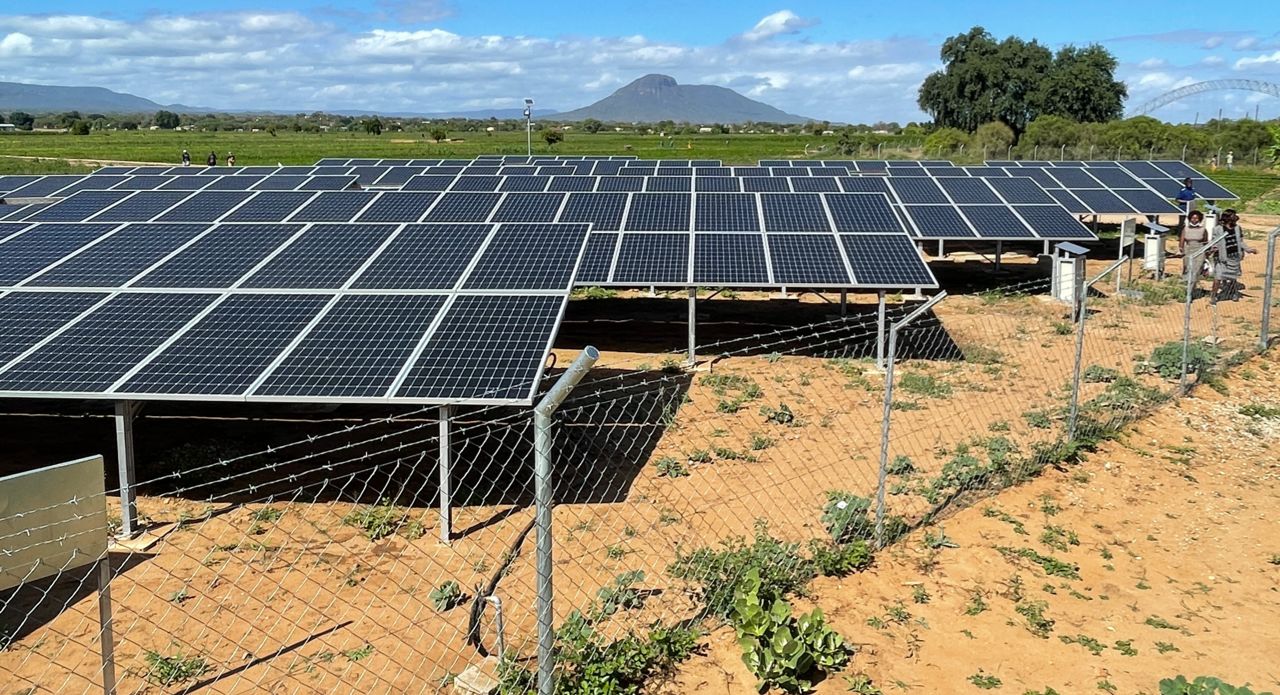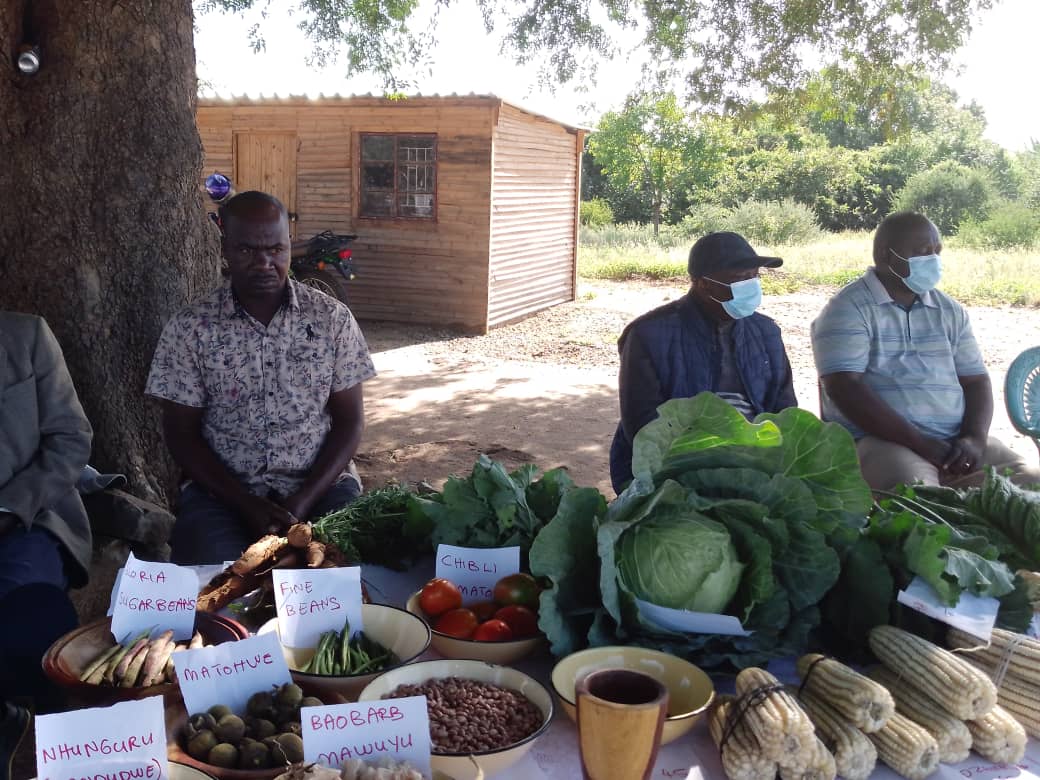|
Getting your Trinity Audio player ready…
|
Mr. Edward Kallon, the United Nations Zimbabwe Humanitarian and Resident Coordinator has said multi-stakeholder collaboration as demonstrated at Maunganidze Irrigation Scheme is a key ingredient for sustainable development.
“I am pleased to see improved livelihoods and the work of UN agencies uniting together to bring positive results as evidenced by the works of UNOPS, FAO, and WFP among other UN agencies here at Maunganidze Irrigation Scheme. What we are witnessing here is not possible in many countries. The UN agencies and other stakeholders here are complementing each other. As led by UNOPS, with financing from the World Bank, the work here in terms of Idai recovery is impressive. Such partnerships will fulfill the works of the government in pursuit of achieving sustainable development goals. Such stakeholder engagement is impressive and should be continued in the work of building livelihoods,” Mr. Kallon said.
Addressing stakeholders on a tour of the Maunganidze Irrigation Scheme today, the Food and Agriculture Organisation of the United Nations (FAO) Farm Manager, Mr Stanley Mazhambe said the UN agency undertakes soil analysis to improve production and productivity by the farmers.
“To ensure the recovery of farmers after Cyclone Idai, FAO provided inputs as a starter pack to bring them back into the field. We also provided technical support and trained farmers on environmental awareness campaigns. Some of the activities undertaken include reclaiming gullies and managing the water system.
“Farmers were also trained on the safe use of chemicals, and the proper management of fire in disposing of crop waste. We also have partnerships with agricultural extension services officers. Post the Zimbabwe Idai Recovery Programme, farmers should produce enough for their own consumption and for sale and be able to access markets,” Mr. Mazhambe said.

An official with the WFP revealed that they formed WhatsApp groups for interaction among farmers, and private partner players. Private players like Agricura were teaching farmers the safe use of farmers. This has resulted in huge volumes of business in irrigation schemes.
WFP provided emergency livelihood assistance for early recovery by providing immediate food assistance for cyclone recovery to prevent irreversible coping mechanisms in the worst affected districts. This includes the provision of an integrated assistance package consisting of the provision of conditional and unconditional cash transfers for food; and rehabilitation of community infrastructure and risk reduction interventions. WFP worked with Maunganidze farmers from July 2019 to December 2019 to deliver an emergency response after the Cyclone.
Contract farming arrangements with Seedco have positive outcomes. Common sugar beans are now selling at $2 per kg up from US$1. Canals are now being maintained. Farmers reviewed bylaws to manage the scheme. There are also penalties for farmers destroying infrastructure.
Petronella Chinheya, an associate engineer under UNOPS for the 7 irrigation schemes in the area alluded to the rehabilitation of water infrastructure and other key infrastructure at the scheme in pursuit of building resilience.
“We have also fenced the irrigation scheme. Under the ZIRP, UNOPS rehabilitated 3 boreholes affected by Cyclone Idai. We designed a robust hybrid system solar system saving the scheme from grid electricity. We installed a 4, 5 km perimeter fence that is 1, 8m high. There is also now a guardroom to enhance security. Floodlights light the farm at night. Next year by March 2022 all faults associated with the solar scheme are anticipated to be fixed. Irrigation management ensures the security of the infrastructure. 800m storm drain working with locals,” Chinheya said.
The farmer-managed scheme was established within Maunganidze village under Chief Mutema in 1997 by the Government with funding from the European Union (EU). The 65.5ha irrigation scheme was among schemes that were hard hit by Cyclone Idai which destroyed canals, and boreholes causing flooding and destroying the perimeter fence. The irrigation scheme was operating below 50% capacity due to a water shortage when ZIRP came in to assist.
Lindiwe Bangwayo, one of the beneficiaries of the ZIRP under the Maunganidze Irrigation Scheme said the initiative had brought huge economic benefits to the community.
“ZIRP provided us with a variety of inputs including sugar beans, yellow maize seed as well as Compound D fertilizer. We were also trained in leadership, conservation works, agronomy, and soil analysis for pH. Each family got 20 kg of fine beans seeds from Seedco. Now the Maunganidze Irrigation Scheme boasts of a reliable water supply, secured irrigation scheme, storm drains were constructed, and to cap it all, employment was generated,” Bangwayo said.
